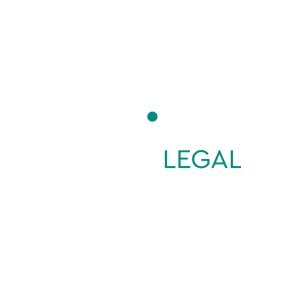Best New Business Formation Lawyers in Mauritius
Share your needs with us, get contacted by law firms.
Free. Takes 2 min.
Or refine your search by selecting a city:
List of the best lawyers in Mauritius
About New Business Formation Law in Mauritius:
New Business Formation in Mauritius refers to the legal process of establishing and registering a new business entity in the country. This involves choosing the appropriate business structure, completing necessary documentation, and complying with local regulations.
Why You May Need a Lawyer:
You may need a lawyer for New Business Formation in Mauritius to ensure that all legal requirements are met, to advise on the best business structure for your needs, to help with drafting contracts and agreements, and to navigate any legal issues that may arise during the formation process.
Local Laws Overview:
Key aspects of local laws relevant to New Business Formation in Mauritius include the Companies Act, which governs the formation and operation of companies, the Business Registration Act, which mandates the registration of all businesses, and various tax laws that impact new businesses.
Frequently Asked Questions:
1. What are the different types of business structures available in Mauritius?
In Mauritius, common business structures include sole proprietorships, partnerships, private companies, and public companies.
2. Do I need a local resident director to register a business in Mauritius?
Yes, at least one director of a company registered in Mauritius must be a resident of the country.
3. What are the steps involved in registering a business in Mauritius?
The steps include choosing a business structure, reserving a business name, preparing incorporation documents, and registering with the Business Registration Division.
4. Are there any tax incentives for new businesses in Mauritius?
Yes, Mauritius offers various tax incentives to attract investors and promote economic growth.
5. What are the ongoing compliance requirements for businesses in Mauritius?
Businesses must file annual returns, hold annual general meetings, maintain accounting records, and comply with tax obligations.
6. Can foreign nationals start a business in Mauritius?
Yes, foreign nationals can start businesses in Mauritius by following the same registration procedures as locals.
7. How long does it typically take to register a business in Mauritius?
The registration process can take several weeks to complete, depending on the complexity of the business structure and the accuracy of the documentation.
8. Do I need a business license to operate in Mauritius?
Yes, certain types of businesses require specific licenses to operate legally in Mauritius.
9. What are the key differences between a private company and a public company in Mauritius?
A private company cannot offer shares to the public and has restrictions on the transfer of shares, while a public company can offer shares to the public and has fewer restrictions on share transfers.
10. How can a lawyer help with New Business Formation in Mauritius?
A lawyer can provide legal advice, help with drafting and reviewing legal documents, ensure compliance with local laws, and represent your interests in any legal disputes that may arise.
Additional Resources:
For more information on New Business Formation in Mauritius, you can contact the Business Registration Division, the Financial Services Commission, or a local law firm specializing in corporate law.
Next Steps:
If you require legal assistance with New Business Formation in Mauritius, the first step is to consult with a qualified lawyer who can guide you through the process and ensure that your business is established in compliance with local laws.
Lawzana helps you find the best lawyers and law firms in Mauritius through a curated and pre-screened list of qualified legal professionals. Our platform offers rankings and detailed profiles of attorneys and law firms, allowing you to compare based on practice areas, including New Business Formation, experience, and client feedback.
Each profile includes a description of the firm's areas of practice, client reviews, team members and partners, year of establishment, spoken languages, office locations, contact information, social media presence, and any published articles or resources. Most firms on our platform speak English and are experienced in both local and international legal matters.
Get a quote from top-rated law firms in Mauritius — quickly, securely, and without unnecessary hassle.
Disclaimer:
The information provided on this page is for general informational purposes only and does not constitute legal advice. While we strive to ensure the accuracy and relevance of the content, legal information may change over time, and interpretations of the law can vary. You should always consult with a qualified legal professional for advice specific to your situation.
We disclaim all liability for actions taken or not taken based on the content of this page. If you believe any information is incorrect or outdated, please contact us, and we will review and update it where appropriate.
Browse new business formation law firms by city in Mauritius
Refine your search by selecting a city.
















